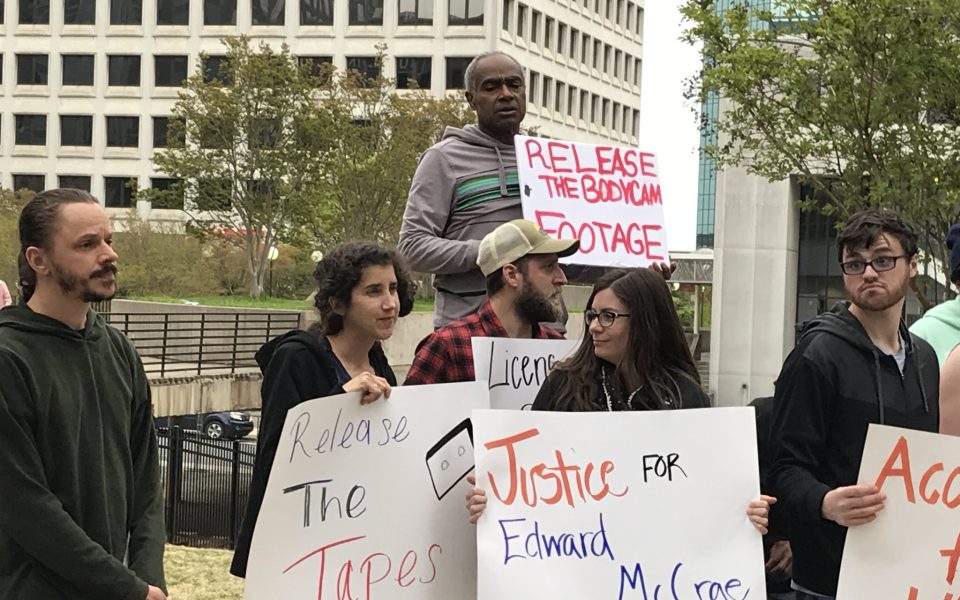On the surface, Superior Court Judge Stuart Albright’s decision to prevent the public from seeing police body-camera video of the fatal shooting of Edward McCrae, 60, by the Winston-Salem Police Department, seems outrageous.
Because here in the United States in 2018, if a police officer shoots and kills yet another black person, we want to know everything that happened before, during and after. We demand no less.
That’s why the Winston-Salem Journal went to court to get the footage, a request Albright denied on Monday: the people’s right to know.
And Albright, who was once the Guilford County district attorney, could easily be seen as having an inclination to rule in favor of law enforcement.
At the bedrock, of course, is state legislation requiring a court order to view police body-camera footage at all — footage, we remind you, captured by government employees operating on our behalf, on publicly owned equipment and that, the majority of the time, exonerates the police of wrongdoing.
But in between there’s nuance.
For one, Albright blocked release of the video in this single instance — “I emphasize: at this time,” he told the court. Which is good, because this footage eventually needs to be made public.
Among the short litany of reasons Albright gave for blocking the footage’s release, the most persuasive was a personal request from McCrae’s family: that they look at the tapes before anyone else does.
Reasonable. Compelling. Compassionate.
And, we remind Albright, temporary.
Because Edward McCrae is dead, shot by a taxpayer-owned bullet. And nothing will be settled until we know exactly what happened.
Amanda Martin, attorney for the Journal, gets the last word: “The call for patience is in no way inconsistent with the call for information,” she said in a rebuttal. “To say, ‘Don’t rush to judgment before we know all the facts,’ sort of implies we need to know all the facts.”
Join the First Amendment Society, a membership that goes directly to funding TCB‘s newsroom.
We believe that reporting can save the world.
The TCB First Amendment Society recognizes the vital role of a free, unfettered press with a bundling of local experiences designed to build community, and unique engagements with our newsroom that will help you understand, and shape, local journalism’s critical role in uplifting the people in our cities.
All revenue goes directly into the newsroom as reporters’ salaries and freelance commissions.


Leave a Reply